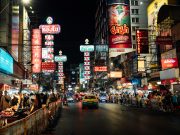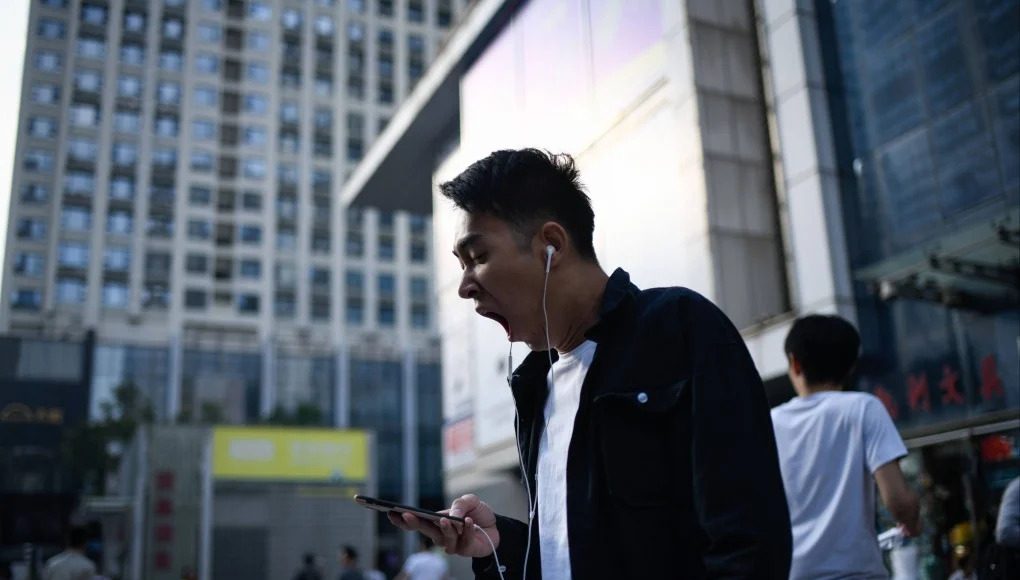(Singapore, 26.05.2025)The move by Mianyang city in China’s Sichuan province to boost languishing consumption by trying out a “4.5-day flexible workweek” scheme has become a point of contention in the country, with many pouring cold water on the idea and others upbeat with excitement.
As the world trends to a three-day weekend practice, local authorities across China in emulation have rolled out non-mandatory policies encouraging granting 2.5-day weekend (Friday afternoon + Saturday and Sunday) to workers with a view to stimulating domestic tourism and consumption. The argument is that having more leisure time people will spend more.
However, as the policies carry no legal force, only a handful of government agencies and private enterprises have adopted the suggestion so far.
While that call seems to be petering out, Mianyang broke the news last week that it is trialling a 4.5-day workweek scheme. The announcement quickly surged to the top spot on the trending news list of Chinese social platform Weibo, sparking widespread discussions. Some comments ran buoyantly along this line: “If this is really being implemented, I’ll go work in Mianyang” while others acidly remarked: “Stop feeding people empty promises—first make sure we already practise the existing 8-hour workday and two-day weekend rules.”
According to the Red Star News of Sichuan and Jimu News of Hubei province, the Mianyang Municipal Bureau of Commerce last week released its “2025 Work Plan of Special Actions to Boost Consumption in Mianyang,” which aims to “fully enhance residents’ spending power and the market dynamics.”

The work plan calls on workers to fully take their annual and paid leaves, and advises couples to put together joint flexible time-off arrangements. It also proclaims it would go on a trial run of a 4.5-day flexible work schedule, which is tantamount to the “Friday afternoon + weekend” 2.5-day model, and urges other entities with the suitable conditions to implement either.
A commentary in Sina.com, one of China’s popular news website, pointed out that in recent years “anti-involution” has become a popular call across the country. It recalled the central government’s 2024 Central Economic Work Conference (CEWC) explicitly listing “regulating ‘involution (neijuan) -style’ competition” as a key task.
The commentary noted that Mianyang’s move echoes the CEWC’s agenda. “Now Mianyang is piloting a 4.5-day flexible workweek to target two main goals: alleviate workplace involution by shortening work hours, reducing ineffective overtime, and improving employees’ work-life balance, as well as stimulate the consumer economy by increasing leisure time, encouraging people to go out for consumption and travel, thereby spurring economic recovery,” it added.
Involution is a buzzword now in China for describing a state of intense competition where people keep working harder and harder, but their efforts do not lead to meaningful progress or better outcomes. Instead, the competition just makes everyone more exhausted and stressed, without changing the overall situation.
Meanwhile, Chinese workers have been whining over long work hours and inadequate rest days. When the Mianyang news broke, excited cries like “the 2.5-day weekend is really coming” went viral across multiple social media platforms. Some interpreted the announcement as at least indicating that Mianyang is actively promoting 4.5-day workweek.
However, a spokesperson of the Mianyang Municipal Bureau of Commerce quickly clarified on Saturday that the document only advised entities with the apt conditions to adopt the scheme and it is not a mandatory policy.
While many netizens remain hopeful and express envy toward government employees who will undergo the trial, others are sceptical. They called on the authorities to first enforce the existing rules of two-day weekend and 8-hour workday, and to crack down on exploitative companies still practising the “996” work schedule (9 a.m. to 9 p.m., six days a week) or the “big/small week” system (alternating one-day and two-day weekends).
Some bemoaned the gap between policy and reality, saying, “A lot of people can’t even get two days off a week, so this 4.5-day workweek seems a distant dream.”
A popular influencer on the social platform X, “Teacher Li is Not Your Teacher,” also criticised the Mianyang government in a post on Saturday. He referenced his “Niuma.ICU” public-interest project, which tracks worker exploitation, saying that in Mianyang alone, at least eight companies do not even offer the standard two-day weekend, with employees working six or even seven days a week. Among these companies are well-known state-owned and private enterprises such as China Academy of Engineering Physics, Changhong Electric, and BOE Technology.
“Niuma”, which means cow and horse, is now associated with terms like “involution” and “wage slaves’ in Chinese internet, often used for self-mockery, the effect of irony or to criticise abusive work conditions.
The buzz over the 4.5-day weekwork announcement has also revealed a stark divide in China —while white-collar workers overwhelmingly support it, blue-collar workers, hoping to earn more, tend to prefer overtime instead.
China’s Consumer Price Index (CPI) in the first quarter of 2025 fell by 0.1% year-on-year, indicating deflationary pressures. But according to China’s flagship newspaper People’s Daily, when food and energy prices are excluded, the core CPI increased by 0.3%, suggesting more stable pricing trends.
Meanwhile, challenges such as cautious consumer sentiment and economic structural issues persist to haunt consumption. How effectively policy measures work and the pace of structural reforms will determine whether consumption recovery is sustainable.





































